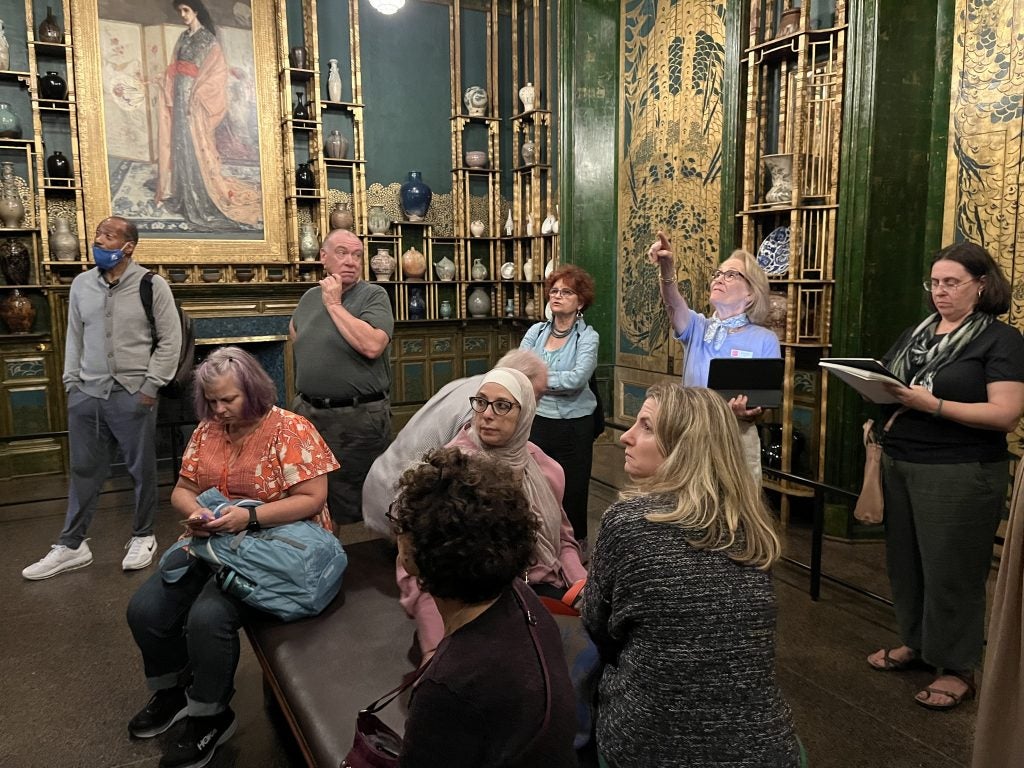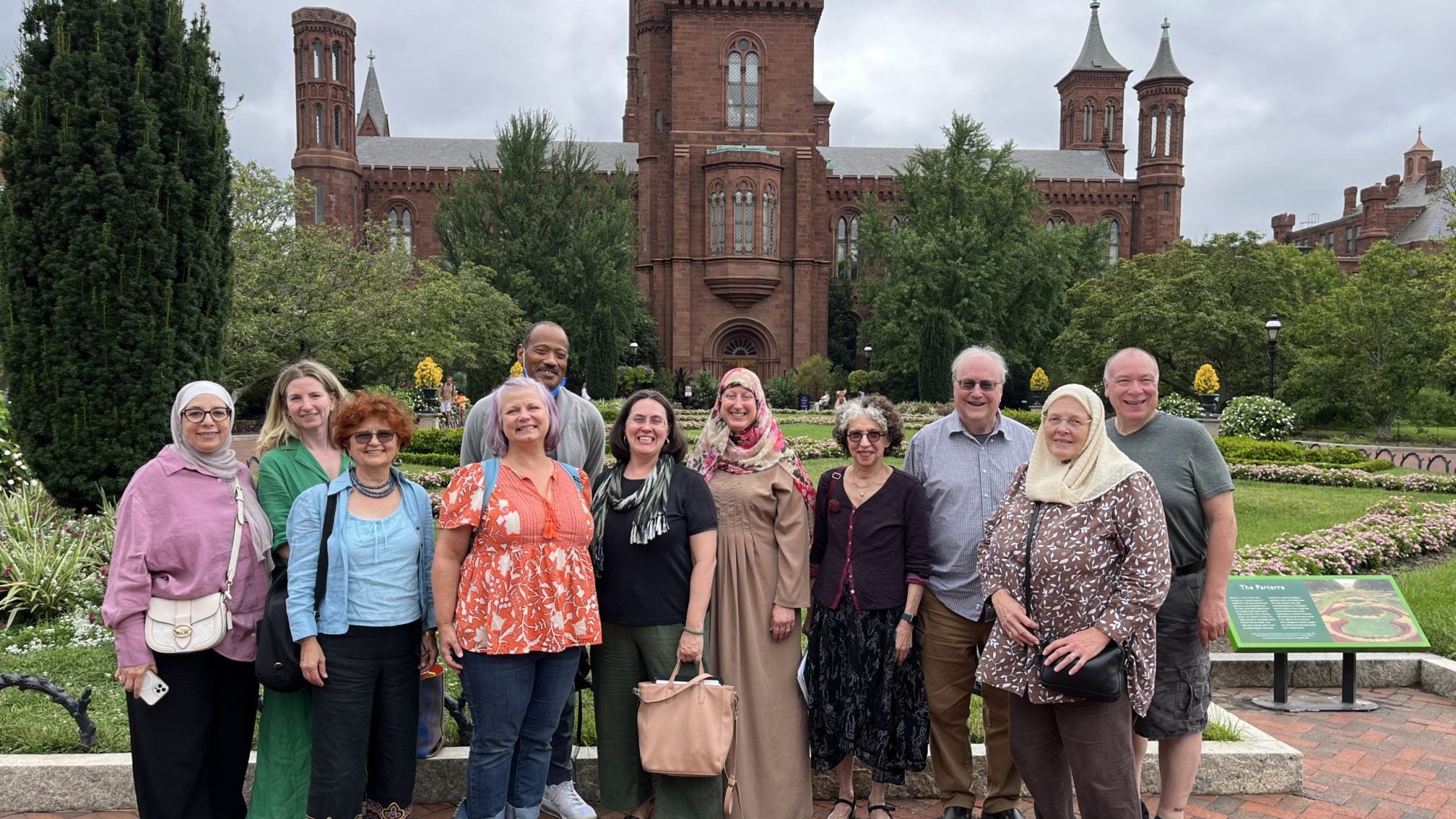CCAS’ Education Outreach program, led by Dr. Susan Douglass, hosted the Summer Teacher Institute 2023 The Long 19th Century in the Middle East and North Africa, and Its Global Impact from July 31 to August 4.
“The purpose of the Summer Teacher Institutes held over the past 20 years are to provide teachers with access to current scholarship, to explore innovative approaches to key topics in their curricula, and to enjoy fellowship with other teachers in various disciplines where teaching about the MENA in the global context,” says Dr. Douglass.
The theme continued the thread of past institutes for educators looking at the MENA region in a global context, and in close relation to European cultural trends that play a major role in world history curricula in the schools. This institute explored the period known as the Long Nineteenth Century—taking a view from the closing decade of the eighteenth century to the early decades of the twentieth century. The content provided a framework for understanding and teaching about the forces, groups and individuals who were agents of the enormous changes that took place during that time period, and its impacts on people at all levels of society. Speakers included professors, curriculum developers, and authors from around the U.S. and beyond.
Attendees received access to teaching resources, readings and other media from the speakers. Teaching resources included a teaching module from Our Shared Past in the Mediterranean, “Module 5: Reform and Social Change in the Mediterranean, 1798-1914,” the teaching unit for the National Center for History in the Schools “Images of the Orient: Nineteenth-Century European Travelers to Muslim Lands,” and “Rethinking the Region: New Approaches to K-12 Curriculum on the Middle East and North Africa,” among others.

One attendee noted, “The workshop allowed me to rethink my material of content courses I teach on the Arab World in a way that promotes more understanding of the suffering of the people, the transition of history, the rise and decline of nations, the importance of the personal narratives of people under oppressive regimes and much more. I consider myself very lucky to attend this amazingly well thought and well organized workshop and I look forward to future workshops.”
Interested in the Education Outreach program? You can sign up for the mailing list here.
The event was made possible by a Title VI grant from the United States Department of Education, which is funding a National Resource Center on the Middle East and North Africa at Georgetown University, and by support from the Center for Contemporary Arab Studies and the Alwaleed bin Talal Center for Muslim-Christian Understanding at Georgetown.
